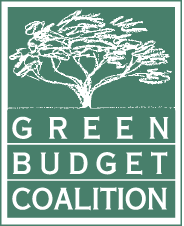Canada has introduced policies to end subsidies and international public financing for unabated fossil fuel projects. Building upon this, Canada must now close gaps in existing policies and introduce a policy to end domestic public finance for fossil fuels.
Canada first committed to phase out inefficient fossil fuel subsidies in 2009 at the G20, and recently published its framework assessment for fossil fuel subsidies. Canada also committed to ending domestic public finance for fossil fuels, and to publish a plan to do so by fall 2024.
Meanwhile, federal fossil fuel subsidies and supports totaled at least $20.2 billion in 2022, including direct transfers and foregone tax revenues as well as public financing. Domestic public finance occupies a significant portion of Canada’s fossil fuel support, and is not covered by existing phase-out policies. Export Development Canada provided at least $4.3 billion annually on average for domestic fossil fuel projects from 2019-2021.
The urgency of the climate crisis and the need for rapid emissions reductions means new government investments must be focused on carbon-free energy systems and not prolong reliance on fossil fuels. In keeping with the polluter pays principle, the costs of reducing emissions in oil and gas production and other high-emitting industries should be borne by industry.
Recommendations:
- Close gaps in fossil fuel subsidies and international public finance policies [FIN, ECCC]
- Publish the results of Canada’s long overdue self-review by fall 2023, including a full inventory of all federal fossil fuel tax and non- tax subsidies and supports, and a rationale for any deemed ‘efficient’. [FIN, ECCC]
- Close gaps in existing subsidies and public finance policies to ensure no further support for ‘abated’ oil and gas production, including through carbon capture and storage. [FIN, NRCan, ISED, ECCC]
- Create a central mechanism for transparency, accountability, and enforcement of current policies to ensure they are upheld across departments. This could include annual government audits of departmental spending. [ECCC]
- Ensure Budget 2024 reflects the updated policy, in particular through the elimination of tax-related subsidies (e.g., development expense reductions, accelerated investment incentive). [FIN]
- End domestic public financing for fossil fuels, particularly from Export Development Canada (EDC), by Budget 2024 [FIN, GAC]
- Building upon Canada’s international public finance policy, introduce a policy to end EDC’s support for fossil fuels domestically, with robust exclusionary policies that include indirect support and at minimum align with those in the international policy.
- Align EDC’s entire portfolio with Canada’s climate commitments and a robust 1.5°C degree scenario. Substantially improve EDC’s target for reducing carbon-intensive investments and develop concrete plans for reducing these investments in order to support the transition to clean energy.
- Increase transparency on public finance transactions through EDC and GHG emissions associated with investments.
